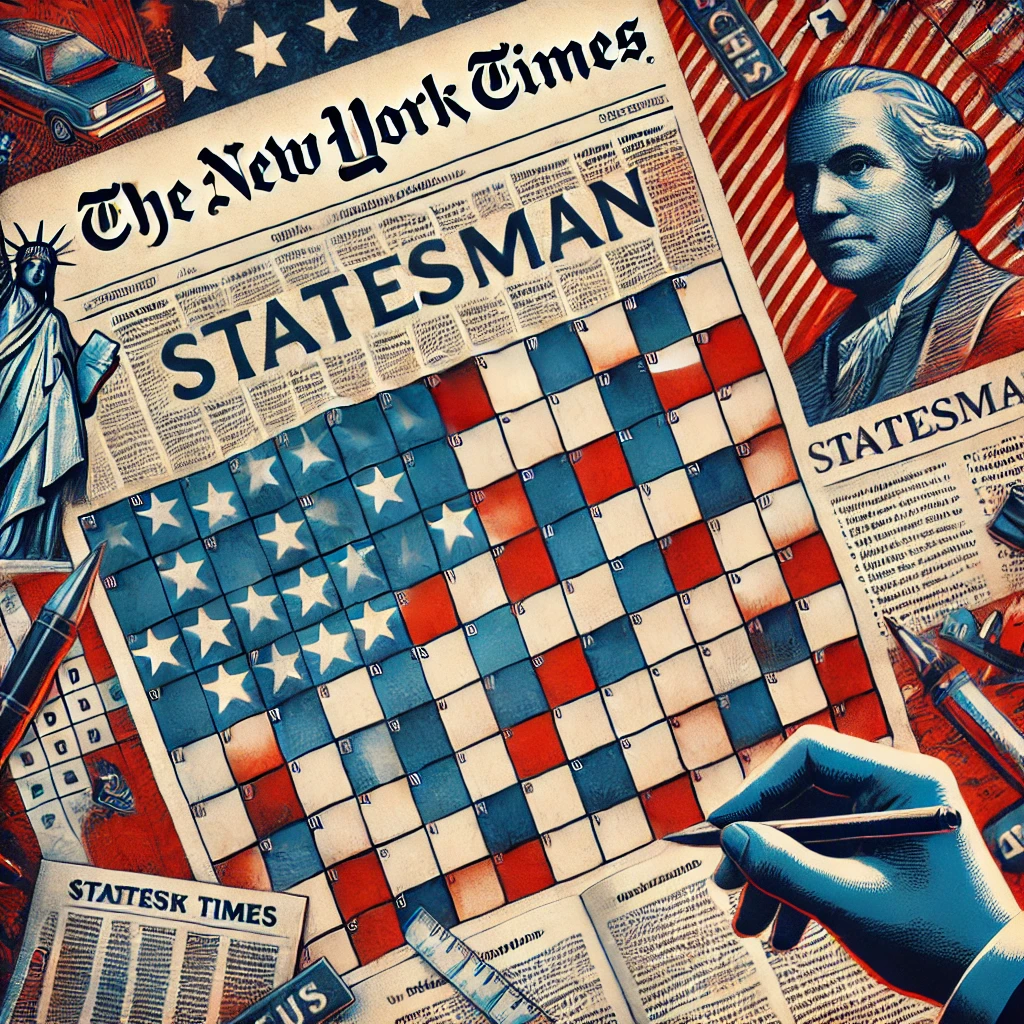Introduction Statesman NYT Crossword
On the off chance that you love crossword puzzles, you’ve likely experienced the the Statesman NYT Crossword hint eventually. The New York Times Crossword is known for its smart wit and verifiable references, making “legislator” a typical yet precarious hint. Yet, who precisely qualifies as a legislator in crossword terms, and how might you break these hints effortlessly? Let’s explore.
What Is the NYT Crossword?
A Brief History
The NYT crossword has been around since 1942, gaining a reputation as one of the most prestigious crossword puzzles worldwide. Created daily, these puzzles range from easy on Mondays to nearly impossible by Saturday.
Why It’s So Popular
Crossword devotees love the NYT puzzle due to its sharp wit, social references, and the feeling of achievement that accompanies tackling a difficult network.
Who or What Is “Legislator’ in the NYT Crossword NYT Crossword?
Common Definitions of ‘Statesman’
A ‘statesman’ generally refers to a respected political leader, but the term can also relate to historical figures, authors, or even specific cultural references.
How the NYT Crossword Uses ‘Statesman’
Political Figures and Leaders
If the clue hints at a political context, names like LINCOLN, CHURCHILL, or JEFFERSON might be correct answers.
Literary and Historical References
The NYT crossword often references famous quotes or literature, meaning ‘statesman’ could relate to authors or thinkers like TOCQUEVILLE or LOCKE.
Strategies to Solve ‘Statesman’ Clues in the NYT Crossword
Context Clues Matter
Always read the surrounding clues. If the puzzle has a political theme, ‘statesman’ likely points to a government leader.
Understanding Wordplay and Anagrams
Sometimes, the answer isn’t straightforward. Watch for anagrams or partial wordplay clues that can hint at alternative answers.
The Importance of Crossword Themes
Themed puzzles often provide subtle hints. If the puzzle focuses on world leaders, expect ‘statesman’ to relate to an iconic politician.
Tips for Mastering the NYT Crossword Puzzle
Start with Monday Puzzles
Monday puzzles are the easiest, making them the perfect training ground for beginners.
Use a Thesaurus and Dictionary
When in doubt, looking up synonyms can help you decode tricky clues.
Recognize Common Crossword Words
Certain words appear frequently in crosswords, like EPEE, ERIE, or ALOE. Memorizing these can give you an edge.
Careful discipline brings about promising results
The more riddles you tackle, the better you’ll get. Consistency is critical!
Why Crossword Puzzles Are Great for Your Brain
Enhancing Vocabulary
Crosswords acquaint you with new words and expressions, extending your semantic abilities.
Helping Mental Abilities
Normal crossword tackling has been connected to further developed memory and critical thinking abilities.
A Pleasant Method for decreasing Pressure
Submerging yourself in a crossword puzzle can be an extraordinary method for loosening up and have some time off from day to day stressors.
Last Considerations
The NYT crossword is a compensating challenge, and understanding words like ‘legislator’ can make tackling it considerably more charming. With training and the right methodologies, you’ll be en route to turning into a crossword genius in a matter of seconds!
FAQs
1. How often does ‘statesman’ appear in the NYT crossword?
While not an everyday occurrence, ‘statesman’ appears periodically, especially in puzzles with political or historical themes.
2. Can ‘statesman’ ever refer to a non-political figure?
Yes! Sometimes, it might be used metaphorically for an influential thinker, writer, or cultural leader.
3. What are some alternative words for ‘statesman’ in crossword puzzles?
Terms like POL, LEADER, MINISTER, or DIPLOMAT might serve as substitutes.
4. Where can I find NYT crossword hints and solutions?
Websites like XWord Info, Rex Parker Does the NYT Crossword, and the official NYT crossword section provide hints and solutions.
5. How can I get better at solving NYT crosswords?
Start with easier puzzles, study common crossword words, and
